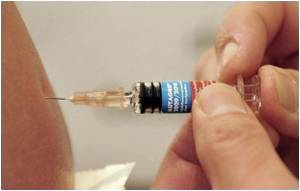Rotarix or RotaTeq Vaccination given to infants can significantly reduce the rate of severe rotavirus diarrhoea.

These are the conclusions of a Cochrane Systematic Review published in the May 2010 issue of The Cochrane Library.
Rotavirus infection is the most common cause of severe diarrhoea in infants and young children, with the peak incidence of disease occurring between six and 24 months of age. Symptoms can range from mild illness, to hospitalization and death. Rotavirus infections cause over half a million deaths per year in children younger than five years, especially in low- and middle-income countries. The virus also results in higher diarrhoea-related death in children less than five years of age than any other single agent, particularly in low- and middle-income countries.
The researchers identified 34 trials that met their inclusion criteria, of which 26 evaluated Rotarix (GSK Biologicals, Belgium) and 8 evaluated RotaTeq (Merck & co., USA). Together, these trials included 175,944 participants. The study also searched for data on the use of Lanzhou Lamb Rotavirus (LLR) vaccine, which is approved for use only in China, but did not identify any trials that met their inclusion criteria. Rotarix and RotaTeq reduced all cases of rotavirus diarrhoea by 76% and 73% respectively at one year of age, and by 67% and 62% respectively at age two years. Severe rotavirus disease was reduced by 72% and 93% respectively at one year and 67% and 89% respectively at two years.
"Discovering just how effective both of these vaccines are at combating rotavirus disease will inform decision-making and support vaccine introduction," says Karla Soares-Weiser, who works at Enhance Reviews Ltd, London and leads a world-wide team of academic and medical researchers.
"New trials with head-to-head comparisons of both vaccines are needed, as well as trials comparing LLR vaccine with placebo, data for special groups of children, such as preterm infants and malnourished children, and careful monitoring of adverse events where vaccines are routinely used," says Soares-Weiser.
Advertisement
Source-Eurekalert
SAV









